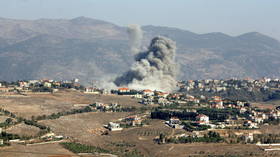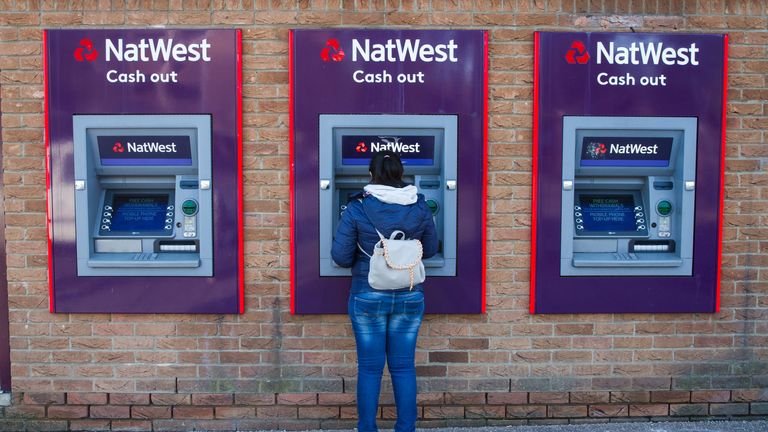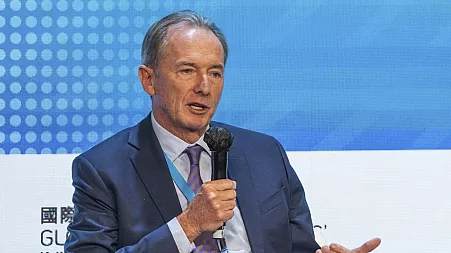 Smoke clouds after an Israeli air strike on Khiam in southern Lebanon, September 25, 2024. © Getty Images / Stringer/Anadolu
Smoke clouds after an Israeli air strike on Khiam in southern Lebanon, September 25, 2024. © Getty Images / Stringer/Anadolu
The escalating conflict between Iran and Israel could leave the global economy vulnerable to a 1970s-style energy shock, Bank of England Governor Andrew Bailey said on Thursday, in an interview with the Guardian.
The warning comes shortly after Israel’s invasion of southern Lebanon and Iran’s subsequent launch of ballistic missiles at Israel. The prospect of an all-out regional war in the Middle East immediately sent oil prices surging as much as 3%.
Brent futures for December delivery was up 1.91% at $75.31 per barrel, while US West Texas Intermediate crude for November delivery climbed 2.21% to $71.65 per barrel, as of 13:25 GMT.
“Geopolitical concerns are very serious,” Bailey said, adding that the regulator was watching developments “extremely closely.”
“It’s tragic what’s going on. There are obviously stresses and the real issue, then, is how they might interact with some still quite stretched markets in places,” he added.
The central bank chief also warned that there were limits to what could be done to prevent the cost of crude rising if things “got really bad.”
According to analysts, the prospect of a broader conflict across the Middle East that could disrupt crude oil flows from the region has overshadowed a stronger global-supply outlook.
“Following the initial jitters from geopolitical risks in the Middle East, we have seen some calm return to global markets but, of course, with market participants still keeping a side-eye on any upcoming Israeli response,” market strategist at IG Yeap Jun Rong told the Business Standard.
Earlier this week, Iran’s Islamic Revolutionary Guard Corps (IRGC) fired some 200 missiles at Israel, saying that the attack was in response to Israel’s bombardment of Gaza and Lebanon, and in retaliation for the recent killings of the heads of Hamas and Hezbollah by the Israel Defense Forces (IDF).
West Jerusalem had, on the previous day, launched ground raids against Hezbollah in southern Lebanon. The operation, coupled with intense airstrikes, is aimed at stopping cross-border rocket and mortar attacks by Hezbollah, according to the IDF.
Violence on Israel’s northern border surged last October after West Jerusalem besieged the Palestinian enclave of Gaza, in response to a deadly incursion into southern Israel by the Hamas militant group based there. Hezbollah supports the Palestinians and has vowed that it will only stop cross-border rocket attacks when a ceasefire is reached in Gaza. Israel’s goal is to “eliminate” Hamas completely, and it has repeatedly rejected public calls from Washington for a truce.
Disclaimer: The copyright of this article belongs to the original author. Reposting this article is solely for the purpose of information dissemination and does not constitute any investment advice. If there is any infringement, please contact us immediately. We will make corrections or deletions as necessary. Thank you.



